
Mass power outages have begun in Moldova due to damage to the Ukrainian energy system, Deputy Prime Minister and Minister of Infrastructure and Regional Development Andrei Spynu said.
“Today we have a repeat of the situation of November 15. After the damage to the Ukrainian energy system in the last hour, we have mass power outages across the country. Moldelectrica is working to restore electricity connections,” Spynu wrote Wednesday on social media.
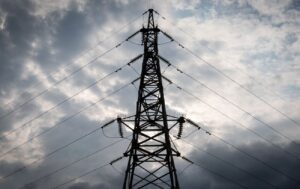
DTEK Energy Holding within the framework of Rinat Akhmetov’s Steel Front initiative in February-September this year supplied Ukrainian military and medics with over UAH 250 million worth of free electricity.
“Overall, medical and military institutions in Kyiv, Dnipropetrovsk and Donetsk regions received 45.15 million kWh of electricity. This allowed the state budget to save 250 million UAH and direct these funds to the urgent needs of the defense,” the holding said in a release on Friday.
According to it, more than 100 state and municipal medical institutions, as well as military and security agencies are provided with free electricity.
In particular, electricity is provided to Dnipropetrovsk Regional Clinical Hospital named after I.I. Mechnikov, Dnipropetrovsk Regional Children’s Clinical Hospital, Kyiv City Clinical Hospital № 8, and others.
DTEK’s press service clarified to Energoreform that supplies of free electricity continue.
The company noted that since the beginning of the war, SCM businesses, which includes DTEK, have sent more than UAH 3 billion to help Ukraine and Ukrainians, including as part of the Rinat Akhmetov Steel Front military initiative, in particular, over 150,000 bulletproof vests, over two thousand drones and radios, 700 cars, 0.5 million liters of fuel and others were made and transferred.
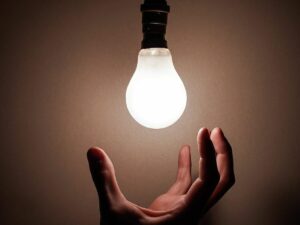
The energy crisis and inflation are creating serious problems for restaurants and hotels in Germany, to reduce increased costs, entrepreneurs are introducing additional fees for electricity and heating, according to Redaktions Netzwerk Deutschland (RND).
“Rising energy costs are making it difficult for the hospitality industry. Some hotels expect to spend an additional €200,000 on heat and electricity every year. To cover these costs, more hotels and restaurants are introducing a flat energy rate of €3.9 per night. This is intended to offset at least some of the extra costs.
As the portal notes, one of these hotels is the five-star Bareiss in Bairsbronn in Baden-Württemberg. From September, the hotel charges 9 euros more per person per night, and also reserves the right to raise the rate further.
According to hoteliers, accommodations are heavily dependent on gas and electricity, so energy costs are rising exponentially. In addition, the business began to spend more on the salaries of employees.
In turn, at The Hearts Hotel boutique hotel in the Braunlage resort in Lower Saxony, each guest currently pays an additional 3 euros per day for electricity.
According to forecasts by the chairman of the German Association of Hotels and Restaurants (Dehoga) Axel Strehl, a similar problem will affect about 10% of accommodation in Germany.
According to RND, a similar situation is developing in restaurants in Germany. So, each visitor to the Zum Grünen Hof restaurant near Bremen must pay an additional 1.5 euros. At the same time, according to the owner, the visitors supported the businessman and are ready to pay even more if it helps to keep the establishment running.
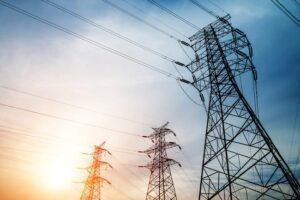
JSC “Energy Company of Ukraine” is ready for any developments in the electricity market, in particular, to stop exports, said Vitaliy Butenko, General Director of the company.
“The situation in the energy sector of Ukraine today remains quite difficult in the context of the war. The company is ready for any scenario, including the cessation of exports,” Butenko said in a comment to the Energoreforma Internet portal on her request.
At the same time, he noted that the strategy of ECU JSC is primarily aimed at working in the domestic market.
“At the same time, we took advantage of the opportunity to export electricity, which made it possible for the state to earn additional profit. For 1.5 months, the income of three state-owned companies from the export activities of ECU amounted to almost UAH 2 billion, and the state’s share in electricity exports to Romania and Slovakia in September reached about 44%,” Butenko emphasized.
Regarding the loan in the amount of UAH 500 million, provided to the company NAEK by Energoatom, Butenko noted that its repayment does not depend on the presence or absence of exports.
“In accordance with our obligations to SE NAEK Energoatom, the state energy trader will repay the loan by the end of this year,” the head of ECU stressed.
As reported, a source of Energy Reform in the government said that from October 10 to October 15, a decision could be made to stop electricity exports to Europe, currently carried out at a capacity of 300 MW. The reason for this is the shortage of power generating capacities, associated, in particular, with the shutdown of all six units of ZNPP, the repair of 1.5 units at other NPPs and the possible withdrawal of another unit for repair, which leads to excess coal consumption, as well as a large number of TPP units in repair.
JSC “Energy Company of Ukraine” (JSC “EKU”), 100% of whose shares belong to the state, on August 17 for the first time entered the export of electricity in the Romanian and Slovak directions, from October 1 it began to export electricity to Poland.
Receipts from ECU by the state-owned NPC Ukrenergo (as a fee for the cross-section and transmission of electricity), SE Guaranteed Buyer (as part of the PSO for the population) and NNEGC Energoatom (payment for electricity) from August 19 to 13 September amounted to almost UAH 1.542 billion.
Earlier, Butenko said that state investments in ECU start-up capital, provided to him in August by NNEGC Energoatom in the form of repayable financial assistance in the amount of UAH 500 million, would be returned by the end of 2022.
According to ECU estimates, these investments can bring UAH 8.2 billion in income to state-owned companies by the end of the year.
JSC “ECU” is a diversified energy supply company that carries out operations for the purchase, sale, supply and market optimization of energy consumption for commercial customers. While the company supplies for export, however, it plans to work also in the domestic market. 100% of the company’s shares belong to the state, the powers to manage them are exercised by the Ministry of Economy.
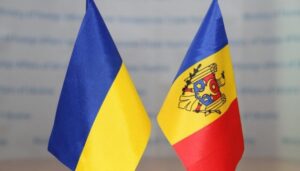
Ukraine, Moldova and Romania have agreed to sign an agreement to increase cross-border capacity to increase electricity trade, Ukrainian Foreign Minister Dmytro Kuleba said.
“We reached several important agreements today to develop our relations in the energy sector, and our teams will continue to work on their implementation. In particular, we agreed to sign a trilateral intergovernmental agreement on increasing cross-border capacity to increase the volume of electricity trade,” Kuleba said at the meeting. press conference in Odessa on Thursday.
Kuleba drew attention to the fact that the meeting in the format of the Ministers of Foreign Affairs and Ministers of Energy of Ukraine, Moldova and Romania is taking place for the first time.
“Three of our countries, and immediately foreign ministers and energy ministers. There is a very clear reason and goal for this – we want to build qualitatively new relations in the energy sector between our three countries, and this will be important not only for energy, but also for security and prosperity in our region,” the minister stressed.
Currently, Ukraine exports electricity to Moldova in the amount of about 165 MWh, with a possible maximum of 600 MWh, and to Romania – 150 MWh.
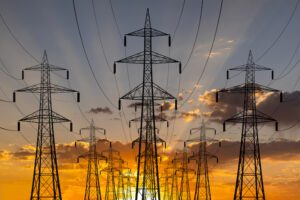
In January-August 2022, Ukraine increased its revenue from electricity exports by 1.7 times (by $115.664 million) compared to the same period in 2021, to $278.75 million, according to the State Customs Service.
According to Interfax-Ukraine estimates, over eight months electricity was supplied to Poland for $92.689 million, Slovakia – for $59.364 million, Hungary – for $44.688 million, other countries – for $82.009 million.
In August this year, electricity export revenue amounted to $73.112 million compared to $27.474 million in August 2021.
In addition, in January-August 2022, Ukraine imported electricity for $119.067 million against $59.394 million for the same period last year. Including from Belarus – by $100.414 million (in January-February), Belgium – by $12.259 million, Moldova – by $4.695 million, other countries – by $1.698 million.
Last month, Ukraine imported electricity for $11.135 million compared to $0.336 million in August 2021.
As reported, Ukraine in 2021 reduced its revenue from electricity exports by 8.5% (by $23.89 million) compared to 2020, to $256.941 million. In addition, Ukraine imported electricity by $87.345 million in 2021 against $131.605 million for 2020th.
Ukraine in 2021 reduced the export of electricity by 26.5% (by 1 billion 258.7 million kWh) compared to 2020 – to 3 billion 495.4 million kWh, import – by 25.9% (by 591.3 million kWh), up to 1 billion 693.6 million kWh.